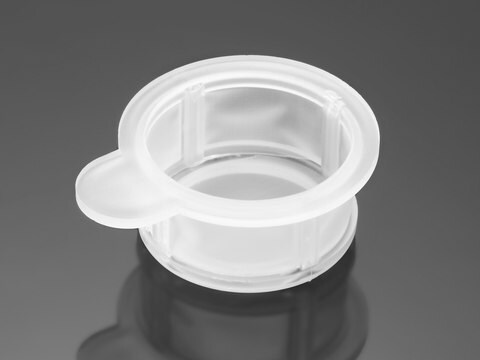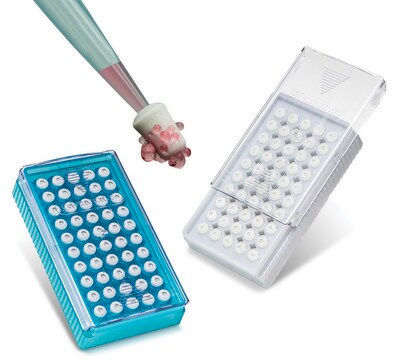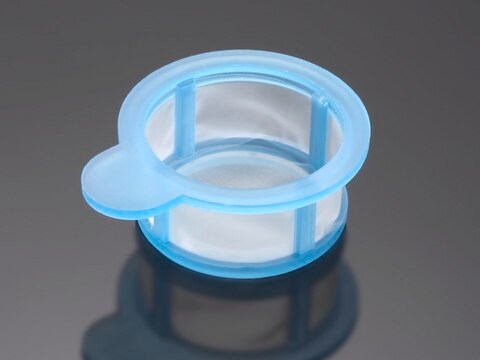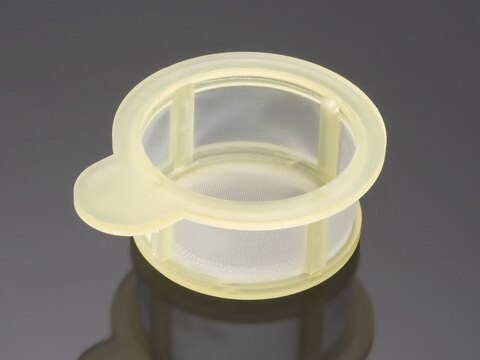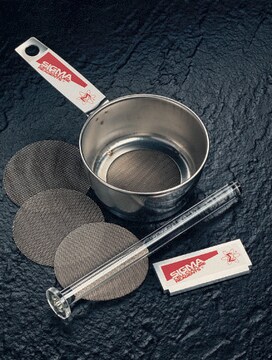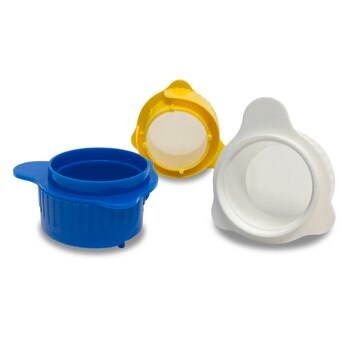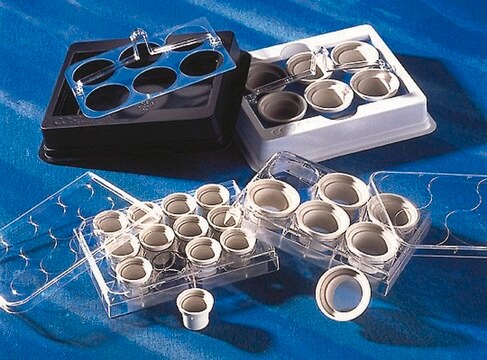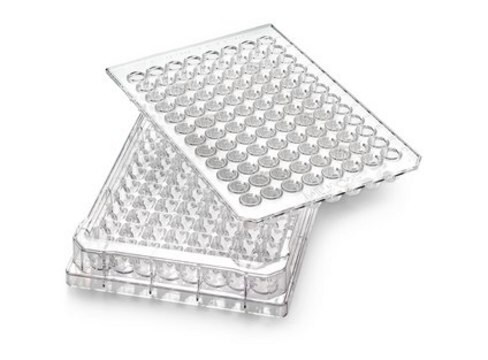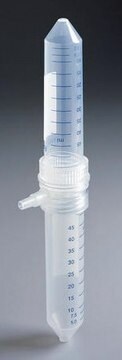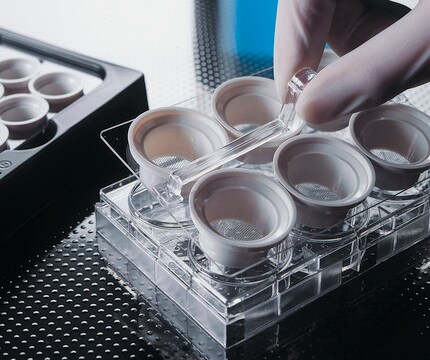CLS431751
Corning® cell strainer
pore size 70 μm, white, sterile, pkg of (individually wrapped), pack of 50 ea, Corning 431751
Synonyme(s) :
Cell Strainer
About This Item
Produits recommandés
Matériaux
Nylon
white
Stérilité
sterile
Conditionnement
pack of 50 ea
pkg of (individually wrapped)
Fabricant/nom de marque
Corning 431751
Dimension de pores
70 μm
Vous recherchez des produits similaires ? Visite Guide de comparaison des produits
Description générale
Application
- Single cell suspensions of blood cells from marrow, pancreas, thymus, tonsil, and lymph nodes
- Stem cells, tissue-derived cells, and cancer cells
- Preparation of specimens for primary cell cultures and immunogens
- Preparation of freezing stocks
- Filtering agglutinative proteins produced in inactivation serum
Caractéristiques et avantages
- Strong nylon mesh with 70- micron pores for optimal performance in a variety of applications
- Evenly spaced mesh pores providing consistent and reliable results
- Conveniently accessible in individual packaging
- Extended lip on strainer enables aseptic handling with forceps
- Molded color-coded polypropylene frame with tab enables easy handling and identification
- Fits all major brands of 50mL conical tubes
- Disposable, easy-to-use, inexpensive, maintains sample integrity
- Sterilized by γ−irradiation, noncytotoxic
Informations légales
Certificats d'analyse (COA)
Recherchez un Certificats d'analyse (COA) en saisissant le numéro de lot du produit. Les numéros de lot figurent sur l'étiquette du produit après les mots "Lot" ou "Batch".
Déjà en possession de ce produit ?
Retrouvez la documentation relative aux produits que vous avez récemment achetés dans la Bibliothèque de documents.
Les clients ont également consulté
Articles
Development of a novel serum-free and xeno-free human mesenchymal stem cell (MSC) osteocyte differentiation media.
rganoid culture products to generate tissue and stem cell derived 3D brain, intestinal, gut, lung and cancer tumor organoid models.
Protocoles
Information about mesenchyme, specifically mesenchymal stem cell procotols. Step-by-step cell culture protocols for mesenchymal stem cell (MSC) isolation, expansion and differentiation.
Notre équipe de scientifiques dispose d'une expérience dans tous les secteurs de la recherche, notamment en sciences de la vie, science des matériaux, synthèse chimique, chromatographie, analyse et dans de nombreux autres domaines..
Contacter notre Service technique
